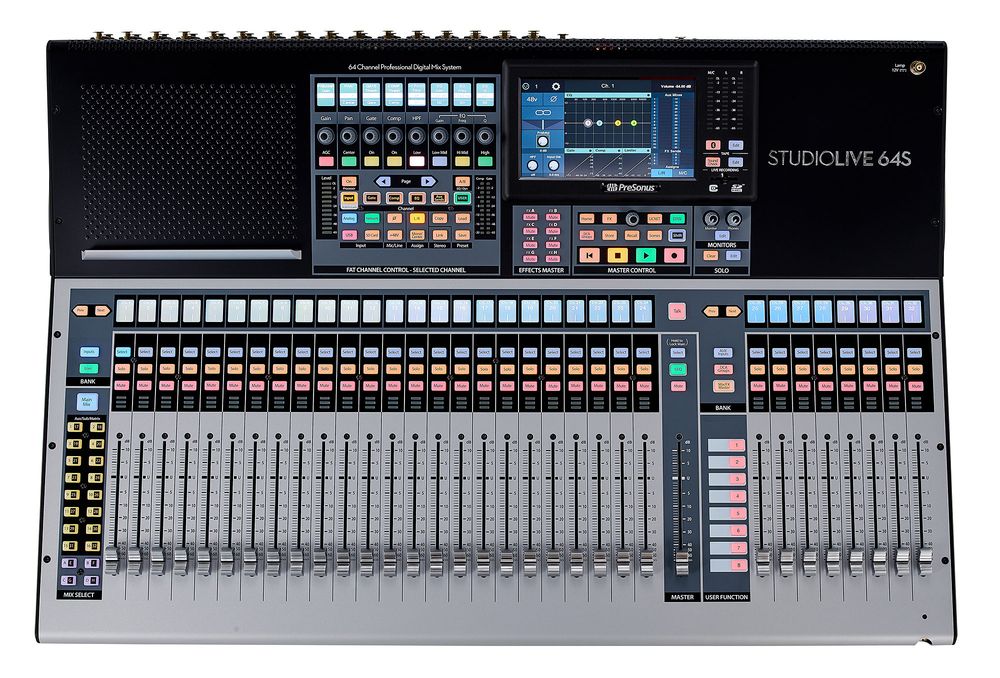9. Digital Mixers in the Studio
Digital mixers can be a handy tool even in studio routines. Especially in home studios, mixers are often a good alternative to interfaces because of their versatility and their ability to combine multiple functions in one device.
Most studio-capable digital mixers offer the option of multi-track recordings via USB. Moreover, some can also serve as DAW controllers. You can use the motorized faders to control the virtual channels in your recording software. Having such a console that combines interface and controller functionalities in a single device saves both space and money.

64-channel digital mixer with a 64x64 USB interface and DAW integration
The physical control surface also simplifies latency-free monitoring, especially in recording situations with multiple musicians (like bands recording live, for instance). Different monitor mixes for all musicians can be easily achieved on the digital mixer with motorized faders (Sends on Fader). Alternatively, you can also work with personal monitoring systems or monitoring apps.
The networking capability of multiple devices in the studio is also quite interesting. This way, you can install a digital stagebox and, if needed, personal monitoring systems for the musicians in multiple studio rooms, and route all signals to the control room where the mixer is located. Through patching, you can decide which inputs to record and which signals to send to each musician.
Whether it's a project studio or a professional setup, digital mixers can present an intriguing alternative to interfaces.



